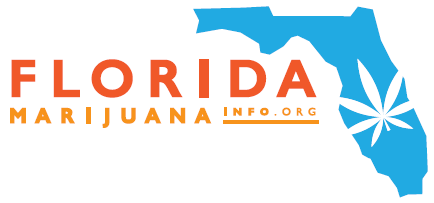FL Department of Health Proposed Rules for Low-THC Cannabis Program
The Florida Department of Health has released a 16 page draft of administrative rules regarding Florida’s new low-THC cannabis program (The Charlotte’s Web Bill/The Compassionate Cannabis Act 2014). The draft rules were released ahead of the July 7th Rule Workshop in Tallahassee. The Rule Develop Workshop will be held at 9 a.m. Eastern until the conclusion of the workshop or 5:00 p.m., in Room 148 at the Betty Easley Conference Center, 4075 Esplanade Way, Tallahassee, Florida 32399. These rules outline how the Department of Health intends to implement the Compassionate Medical Cannabis Act of 2014.
Lottery Could Determine Who Opens Dispensaries in Florida
Under the new law, only 5 nurseries will be selected to grow, process, and dispense low-THC cannabis. According the draft rule, if more than one company is interested in applying to grow, process, and dispense low-THC cannabis in the same region, “a public lottery will be held to determine the order in which applications are considered.” Whichever applicant completes the application first and meets all of the eligibility requirements would be selected. After a dispensary has been selected by the Department of Health, they would have 30 days to pay the $150,000 fee for a license, as well as post a $5 million bond. If the dispensary fails to pay the fees within the 30 day period, the next organization that applied is selected for review and notified.
New Rules Outline 5 Regions of Florida
Under the proposed rules dispensaries would have to be open at least 30 hours a week, and operate between 7am-10pm. Dispensaries would be banned from offering edible cannabis products. The draft rules also outline which counties will fall under the 5 regions set out in the bill. The Northwest Region would include Bay, Calhoun, Escambia, Franklin, Gadsden, Gulf, Holmes, Jackson, Jefferson, Leon, Madison, Santa Rosa, Okaloosa, Suwannee, Taylor, Wakulla, Walton, and Washington counties. The Northeast Region would include Alachua, Baker, Bradford, Clay, Columbia, Dixie, Duval, Flagler, Gilchrist, Hamilton, Lafayette, Levy, Marion, Nassau, Putnam, St. Johns, Suwannee, and Union counties. The Central Region would include Brevard, Citrus, Hardee, Hernando, Hillsborough, Indian River, Lake Manatee, Martin, Orange, Osceola, Pasco, Pinellas, Polk, Seminole, St. Lucie, Sumter, and Volusia counties. The Southwest Region would include Charlotte, Collier, DeSoto, Glades, Hendry, Highlands, Lee, Okeechobee, and Sarasota counties. The Southeast Region would include Broward, Dade, Monroe, and Palm Beach counties.
Under the draft rules the Department of Health could refuse to accept or renew a license if the dispensary is located within 500 feet of a school that existed before they submitted their original application. The Department may also revoke a license if cultivation doesn’t begin within 60 days of receiving approval, or if they do not begin dispensing medicine within 120 days of receiving approval. Growers would have to report any batches that have more than .8 percent THC, or less than 10 percent CBD, to law enforcement, and the batch will be destroyed with permission from law enforcement.
Florida Compassionate Use Registry Created
 Part of the new law establishes the Compassionate Use Registry. The Department of Health has created a new division called the Office of Compassionate Use, to implement the registry. This registry will contain private information about low-THC cannabis patients and their doctors. Under the Department of Health’s draft rules physicians who are qualified to add patients to the registry would have access to the registry, as well as the medical directors of low-THC cannabis dispensaries. Access to the registry would require successful completion of a course on patient confidentiality approved by the Department of Health. Dispensaries may select up to five other people who could access the registry. Law enforcement officials and authorized employees of the Department of Health could also request access. The University of Florida may select up to five authorized employees of their Pharmacy Program to access the registry. Researchers who have been authorized by the Department of Health to conduct research on CBD and low-THC cannabis may also access the registry.
Part of the new law establishes the Compassionate Use Registry. The Department of Health has created a new division called the Office of Compassionate Use, to implement the registry. This registry will contain private information about low-THC cannabis patients and their doctors. Under the Department of Health’s draft rules physicians who are qualified to add patients to the registry would have access to the registry, as well as the medical directors of low-THC cannabis dispensaries. Access to the registry would require successful completion of a course on patient confidentiality approved by the Department of Health. Dispensaries may select up to five other people who could access the registry. Law enforcement officials and authorized employees of the Department of Health could also request access. The University of Florida may select up to five authorized employees of their Pharmacy Program to access the registry. Researchers who have been authorized by the Department of Health to conduct research on CBD and low-THC cannabis may also access the registry.
Other proposed rules in the 16 page document cover the procedures dispensaries will need to follow with growing, processing, and dispensing the low-THC cannabis to ensure safety and that the medicine, and byproducts of processing the medicine, do not end up in the wrong hands. A dispensary’s medical director would be required to determine if any employees have health conditions that could effect the safety or quality of the product, if someone is sick they are prohibited from being in contact with any of the products, equipment, and materials involved in growing, processing, and dispensing the medicine.
To read the 16 page document of FL Dept. of Health proposed rules for low-THC program click here













 OMD Agency
OMD Agency
Recent Comments